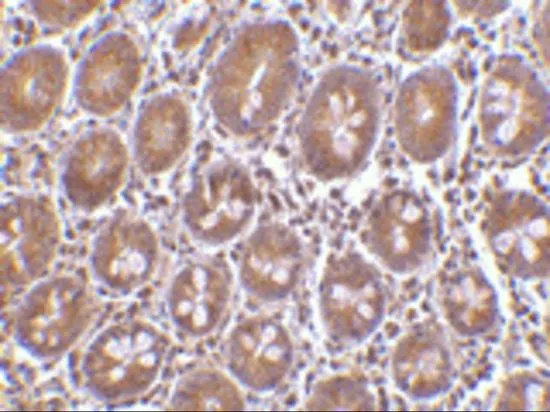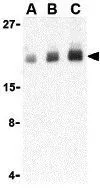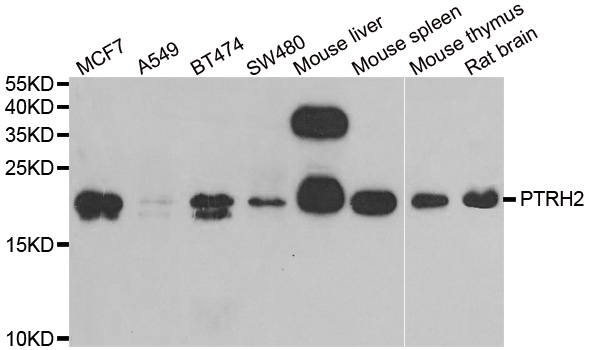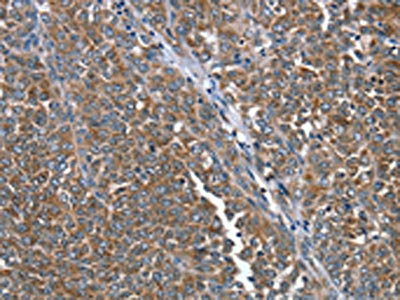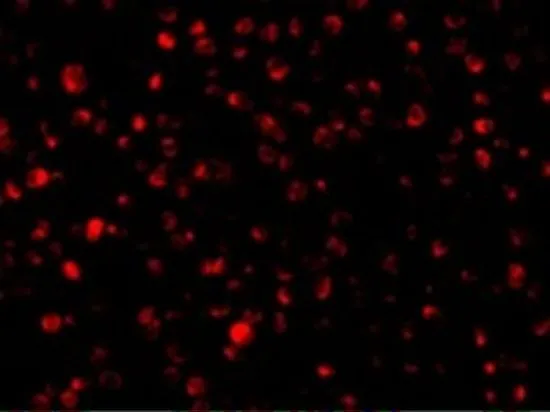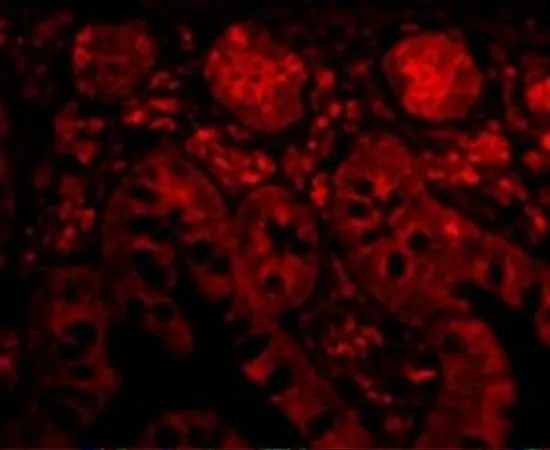
IHC-P analysis of human small intestine tissue using GTX85497 PTRH2 antibody. Working concentration : 20 μg/ml
PTRH2 antibody
GTX85497
ApplicationsWestern Blot, ELISA, ImmunoHistoChemistry, ImmunoHistoChemistry Paraffin
Product group Antibodies
ReactivityHuman, Mouse
TargetPTRH2
Overview
- SupplierGeneTex
- Product NamePTRH2 antibody
- Delivery Days Customer9
- Application Supplier NoteWB: 1 - 4 microg/mL. IHC-P: 10 microg/mL. *Optimal dilutions/concentrations should be determined by the researcher.Not tested in other applications.
- ApplicationsWestern Blot, ELISA, ImmunoHistoChemistry, ImmunoHistoChemistry Paraffin
- CertificationResearch Use Only
- ClonalityPolyclonal
- Concentration1 mg/ml
- ConjugateUnconjugated
- Gene ID51651
- Target namePTRH2
- Target descriptionpeptidyl-tRNA hydrolase 2
- Target synonymsBIT1, CFAP37, CGI-147, IMNEPD, PTH, PTH 2, PTH2, peptidyl-tRNA hydrolase 2, mitochondrial, bcl-2 inhibitor of transcription 1, cilia and flagella associated protein 37
- HostRabbit
- IsotypeIgG
- Protein IDQ9Y3E5
- Protein NamePeptidyl-tRNA hydrolase 2, mitochondrial
- Scientific DescriptionAdhesion to extracellular matrix regulates cell survival through both integrin engagement and appropriate cell spreading. Anoikis is the molecular mechanism of apop-tosis induced by integrin detachment (1). Bit1 (Bcl-2 inhibitor of transcription 1) was recently identified as being involved in this process (2). Bit1 is a mitochondrial protein that is released into the cytoplasm upon onset of apoptosis where it forms a complex with AES, a small Groucho/transducin-like enhancer of split (TLE) protein and induces caspase-independent apoptosis. Both AES and TLE proteins are transcriptional co-repressors that play important roles in neurogenesis, segmentation, and sex determination (3). It has been suggested that Bit1-AES complexes turn off a survival-promoting gene transcription program controlled by TLE (2). Interestingly, apoptosis of cells transfected with Bit1 and AES could be inhibited if the cells were allowed to attach to fibronectin through the alpha5beta1 integrin suggesting that the Bit1-AES pathway contributing to anoikis is regulated by integrins, and in particular, the alpha5beta1 integrin (2).
- ReactivityHuman, Mouse
- Storage Instruction-20°C or -80°C,2°C to 8°C
- UNSPSC41116161

